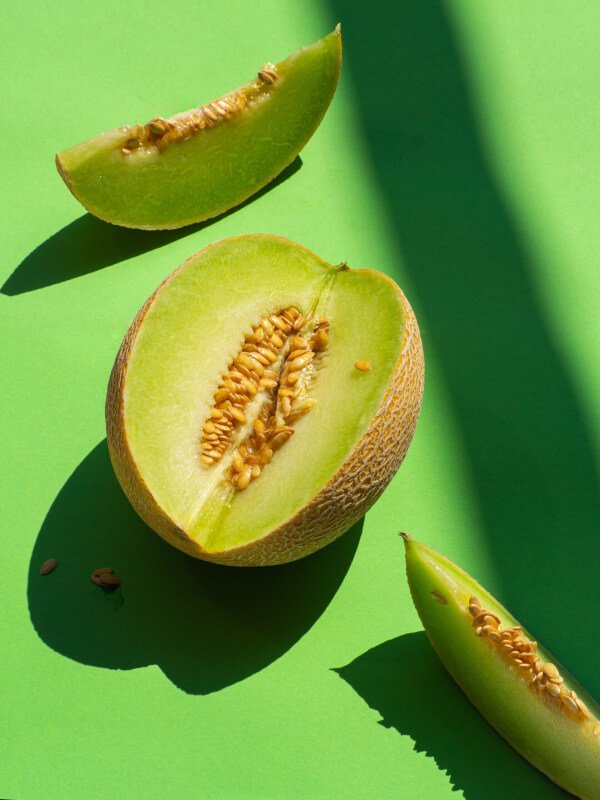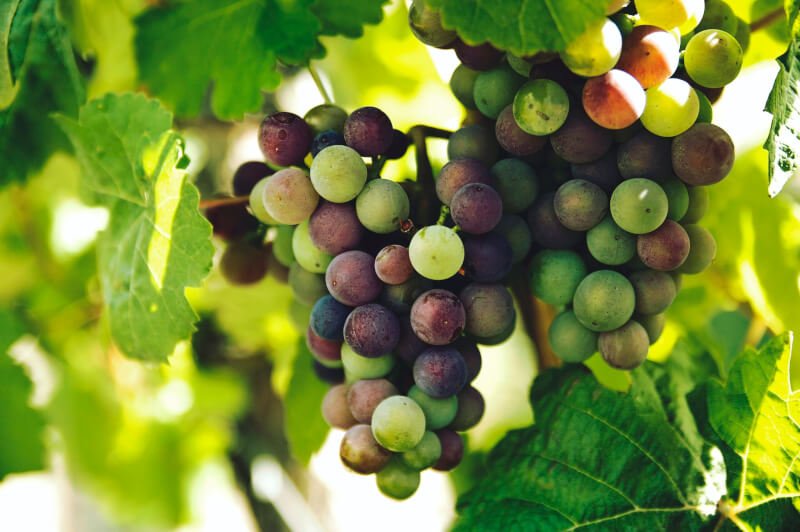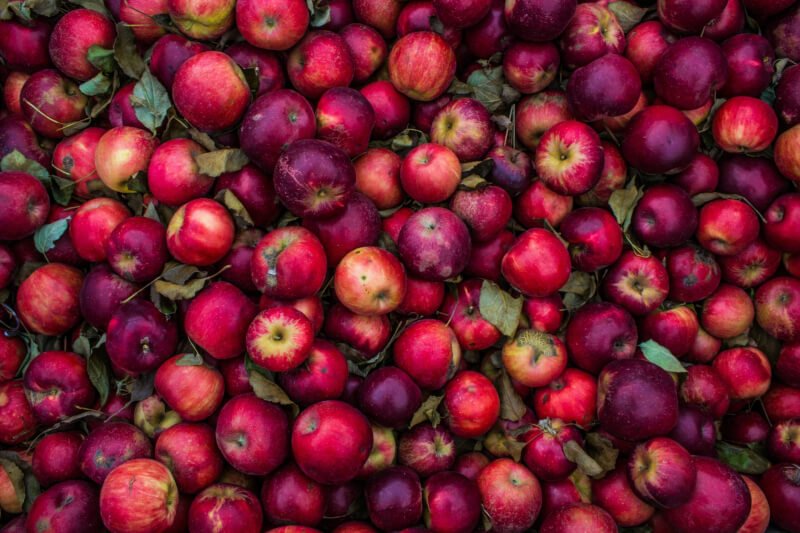Imagine stepping into your own lush garden, filled with an abundance of vibrant and delicious fruits ready to be transformed into the most mouthwatering recipes. As you stroll through the rows of fruit trees and bushes, you can almost taste the sweet juiciness of each succulent fruit. From tangy lemons to juicy strawberries, this article will guide you through the most popular fruits for your healthy garden recipes, ensuring that every bite is a burst of fresh flavor and nourishing goodness.

Apples
Choosing the right apple variety
When it comes to choosing the right apple variety for your garden, there are a few factors to consider. First, think about the climate in your area. Some apple varieties thrive in colder climates, while others prefer warmer regions. You’ll also want to consider the intended use of the apples. Are you looking for a variety that is perfect for baking pies, or do you prefer apples that are best enjoyed fresh off the tree? Additionally, think about the size of your garden and the available space. Some apple trees can grow quite large, so be sure to choose a variety that is suitable for your garden’s size.
Health benefits of apples
Apples are not just delicious; they are also incredibly nutritious. Packed with vitamins, minerals, and antioxidants, apples offer a wide range of health benefits. They are a great source of dietary fiber, which helps promote a healthy digestive system and can aid in weight loss. Apples also contain antioxidants, such as quercetin, which have been linked to a reduced risk of chronic diseases like heart disease and certain types of cancer. Additionally, apples are a good source of vitamin C, which supports immune function, and potassium, which is essential for maintaining healthy blood pressure levels.
Apples in savory garden recipes
Apples can add a delightful twist to savory garden recipes. Their natural sweetness and crisp texture can complement a variety of dishes. Try adding thinly sliced apples to salads for a burst of freshness and a hint of sweetness. You can also incorporate diced apples into stuffing or use them to top savory tarts and pizzas. For a unique twist on a classic sandwich, layer thin apple slices with cheese and deli meat. The possibilities are endless when it comes to incorporating apples into your savory garden recipes.
Apples in sweet garden recipes
Of course, apples are a staple ingredient in many sweet garden recipes as well. Who can resist the aroma of a freshly baked apple pie? Apples can also be used to make delicious apple crisps, cobblers, and tarts. For a healthier alternative, try making baked apples stuffed with oats, nuts, and cinnamon. You can also blend apples into smoothies or puree them to use as a natural sweetener in baked goods. Whether you’re baking a comforting apple dessert or enjoying a refreshing apple-based smoothie, the sweetness and versatility of apples are sure to satisfy your sweet tooth.
Creative apple preservation techniques
If you find yourself with an abundance of apples from your garden, don’t fret! There are numerous creative preservation techniques you can utilize to enjoy your harvest for months to come. One popular method is canning, which involves preserving apples in jars using a sugar syrup or syrup made from apple juice. Canned apples can be used in pies, crisps, or enjoyed on their own. Another option is to dehydrate sliced apples to create crispy apple chips. These make for a nutritious and convenient snack. Additionally, you can freeze apples by peeling, coring, and slicing them before storing in freezer bags. Frozen apples can be used in smoothies, pies, or even to make homemade applesauce. The choice is yours, and the possibilities for preserving apples are endless.
Berries
Varieties of berries for your garden
When it comes to growing berries in your garden, there are a wide variety of options to choose from. Strawberries, raspberries, blueberries, and blackberries are some of the most popular choices. Each berry variety has its own unique flavor and growing requirements. Strawberries, for example, are perfect for gardeners with limited space as they can be grown in containers or hanging baskets. Blueberries, on the other hand, prefer acidic soil and require a somewhat larger planting area. Consider your climate, space, and personal preferences when selecting which berry varieties to grow in your garden.
Health benefits of berries
Berries are often hailed as nutritional powerhouses, and for good reason. These small fruits are packed with essential vitamins, minerals, and antioxidants. Blueberries, for example, are known for their high levels of vitamin C and dietary fiber. They also contain anthocyanins, which give them their vibrant color and have been linked to improved brain health. Raspberries are a great source of vitamin K, which is essential for blood clotting, and they are also rich in antioxidants that can help reduce inflammation in the body. Strawberries are loaded with vitamin C and manganese, and they have been shown to improve heart health and regulate blood sugar levels. Blackberries are a good source of vitamin C and contain antioxidants that can help protect against certain types of cancer. Incorporating a variety of berries into your diet can provide a wide range of health benefits.
Berries in salads and dressings
Berries can add a burst of freshness and sweetness to any salad. Their vibrant colors and juicy textures make them the perfect addition to both green and fruit salads. Try tossing together a simple salad with mixed greens, strawberries, blueberries, and feta cheese. The combination of flavors is sure to delight your taste buds. You can also blend berries into homemade dressings for an extra pop of flavor. For a quick and easy dressing, blend together raspberries, balsamic vinegar, olive oil, and a touch of honey. The result is a tangy and sweet dressing that pairs perfectly with a variety of salads.
Delicious berry desserts
When it comes to desserts, berries take center stage. From classic pies to creamy parfaits, there are endless possibilities for creating delicious berry desserts. For a simple and elegant option, consider serving fresh berries with a dollop of whipped cream or a drizzle of chocolate sauce. Strawberry shortcake, made with tender biscuits, fresh strawberries, and whipped cream, is a beloved summertime treat. You can also incorporate berries into rich and creamy cheesecakes or use them to top off fluffy pancakes and waffles. With their natural sweetness and vibrant colors, berries are the perfect addition to any dessert table.
Making homemade berry jams
Preserving berries in homemade jams allows you to enjoy the flavors of summer all year round. Making your own jam is surprisingly easy and can be a fun activity for the whole family. Start by washing and preparing the berries, removing any stems or leaves. Then, combine the berries with sugar and lemon juice in a large pot and bring to a boil. Continue to cook the mixture until it thickens and reaches the desired consistency. Finally, pour the hot jam into sterilized jars, seal, and allow them to cool. Homemade berry jam can be spread on toast, used as a filling for pastries, or even added to yogurt for a burst of fruity flavor. The satisfaction of enjoying your own homemade jam is truly something special.

Citrus Fruits
Types of citrus fruits to grow
Citrus fruits are a delightful addition to any garden, thanks to their vibrant colors and tangy flavors. When it comes to growing citrus fruits, there are several popular varieties to consider. Oranges, lemons, limes, and grapefruits are some of the most common citrus fruits. Oranges are known for their sweet, juicy flavor and are available in several different varieties, such as navel oranges and Valencia oranges. Lemons, on the other hand, are tart and tangy, perfect for adding zing to both sweet and savory dishes. Limes are commonly used in beverages and tropical-inspired dishes, while grapefruits offer a refreshing and slightly bitter taste. Consider your climate and personal preferences when choosing which citrus fruits to grow in your garden.
Nutritional value of citrus fruits
Citrus fruits are not only delicious but also offer a wide range of health benefits. They are rich in vitamin C, a powerful antioxidant that helps boost the immune system and fights off free radicals in the body. Citrus fruits are also a good source of dietary fiber, which aids in digestion and can help regulate blood sugar levels. Additionally, these fruits contain several other vitamins and minerals, such as potassium, folate, and vitamin A. The combination of nutrients found in citrus fruits makes them a great addition to a healthy balanced diet.
Citrus fruits in refreshing beverages
Citrus fruits are the perfect addition to refreshing and thirst-quenching beverages. Whether you’re hosting a summer barbecue or simply lounging by the pool, a citrus-infused drink is sure to hit the spot. Start by squeezing fresh lemon or lime juice into a tall glass of cold water. Add a few slices of citrus fruit for added flavor and visual appeal. You can also make a delicious homemade lemonade or limeade by combining freshly squeezed juice with water and a touch of sweetener. For a more tropical twist, try blending orange juice with pineapple juice and coconut water. The possibilities are endless, and the refreshing taste of citrus fruits is sure to be a hit with friends and family.
Citrus-infused garden recipes
In addition to beverages, citrus fruits can be used to add a burst of flavor to a variety of garden recipes. Their tangy and vibrant taste pairs well with both sweet and savory dishes. For a light and refreshing salad, combine mixed greens with segments of orange or grapefruit, sliced avocado, and a simple citrus vinaigrette. Citrus fruits can also be incorporated into marinades for meat or seafood, adding a bright and zesty flavor. Try grilling chicken or shrimp with a marinade made from freshly squeezed lemon juice, olive oil, garlic, and herbs. The citrus-infused marinade will not only tenderize the meat but also infuse it with a delightful citrus flavor.
Preserving citrus fruits for later use
If you find yourself with an abundance of citrus fruits from your garden, preserving them can be a great way to enjoy their flavors throughout the year. Citrus fruits can be preserved in a variety of ways, including canning, freezing, and dehydrating. For canning, citrus fruits can be made into jams, marmalades, or preserved in syrup. Freezing citrus fruits is as simple as washing and drying them, then sealing them in airtight containers or freezer bags. Frozen citrus fruits can be used in smoothies, desserts, or even infused in water for a refreshing twist. Dehydrating citrus fruits is another option, resulting in tangy, chewy slices that can be used in a variety of recipes or enjoyed as a snack. By preserving your citrus fruits, you can enjoy their bright flavors even when they are out of season.



